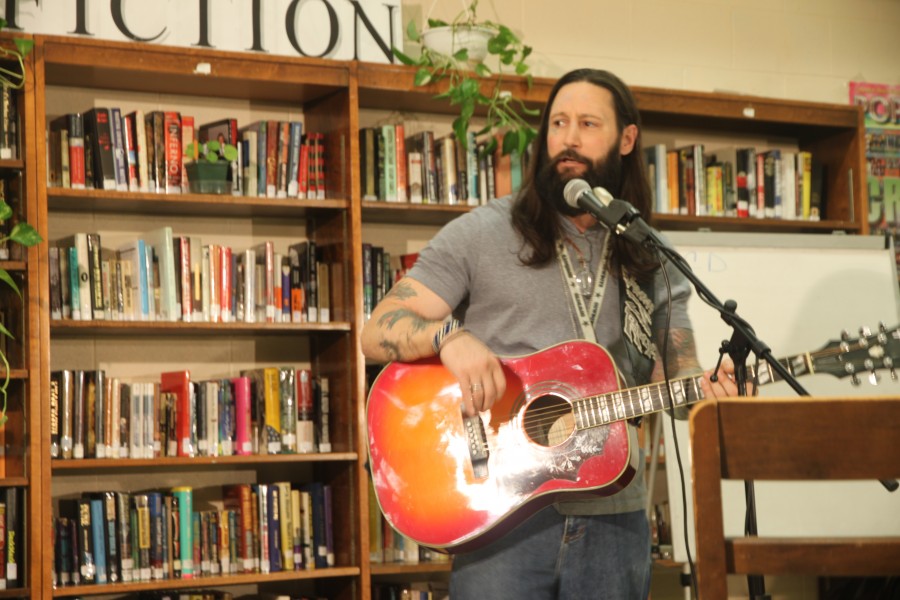Wayne Kramer’s early life was defined by the explosive guitar riffs he once played for the legendary band, the MC5.
But these days, Kramer begins many of his gigs on a different note — like one he played recently at the Patuxent Institution in Jessup, Md.
Instead of cranking up the opening chords to “Kick Out the Jams,” he started his performance with a confession.
“I am Wayne Kramer, and I am an alcoholic and a drug addict — and a sober alcoholic and a clean drug addict,” he said. “And I’m known in the world mostly as a guitar player. But for a few years, I was known as zero-zero-one-eight-zero-one-nine-zero. And I was a federal drug war prisoner.”
Kramer spent two of the prime years of his life locked up in a federal prison in Kentucky on drug charges. He still finds himself going in and out of American prisons. But what brings him behind bars now is a non-profit he started called Jail Guitar Doors USA, which donates guitars for inmates to use for rehabilitative therapy. He told inmates at Patuxent they shouldn’t see the guitars as gifts — that the people who donated them want offenders to know someone believes in them while they’re in a place where it’s easy to feel worthless.
“We want you to be a part of the world,” he said. “We want you to participate in the world. And we know that music, and art in general, is one of the few things that can touch people in their heart fundamentally.”
Kramer treated the inmates to an intimate performance inside the Patuxent library. Books and posters lined the walls in what could have passed for a bare bones junior high school reading room. But some of the songs he played, like one made famous by former San Quentin inmate Merle Haggard, evoked classic jailhouse images.
Prison is a subject that comes up over and over in the American songbook. The man in charge of Patuxent, director Randall Nero, said music should also be a part of how offenders change their behavior and ultimately return to society.

Former MC5 guitarist and Jail Guitar Doors USA founder Wayne Kramer, right, chatting with Patuxent Institution inmate Stephen Simpkins. (Photo by Michael Martinez)
“We really stress for the offenders the need to go ahead and engage in what I would call ‘pro-social’ behavior,” Nero said.
The inmates who came to hear Kramer were certainly social. They jumped at an invitation to grab guitars of their own and join him for an impromptu jam session. But Kramer made clear that he wants them to use the guitars for more than jamming: he wants them to write songs and tell their stories through music.
“The day’s gonna come when you’re gonna be out and things aren’t gonna go your way,” he said. “And you’re gonna have a choice to make. You can pick up your pistol, or you can pick up your guitar. I suggest you pick up the guitar this time.”
The message hit home particularly hard for Artis Bartholow, a 47-year-old inmate who’s currently doing time on an armed robbery charge. He plays guitar every day in his cell at Patuxent. He claims to have written dozens of songs while he’s been locked up, and he intends to write more.
Bartholow wrote “Fallen Angels” in 1999, when the mother of his son was struggling with drug addiction. The song has taken on new meaning for him now that he’s behind bars.
“You can be in jail. You can be on drugs. If you want to change yourself and turn things around, you can do it. I believe that,” he said.
For now, Bartholow’s plan is to keep churning out lyrics and chord progressions. He keeps journals for new song ideas, many of which reflect the hope he has for his future.
But on the recent Sunday that Kramer visited Patuxent, it was one of Bob Marley’s most famous songs that stirred the emotions in the group. Kramer invited the inmates to sing the last chorus of “Redemption Song,” which the men all joined — whether they knew all the words, or not.


